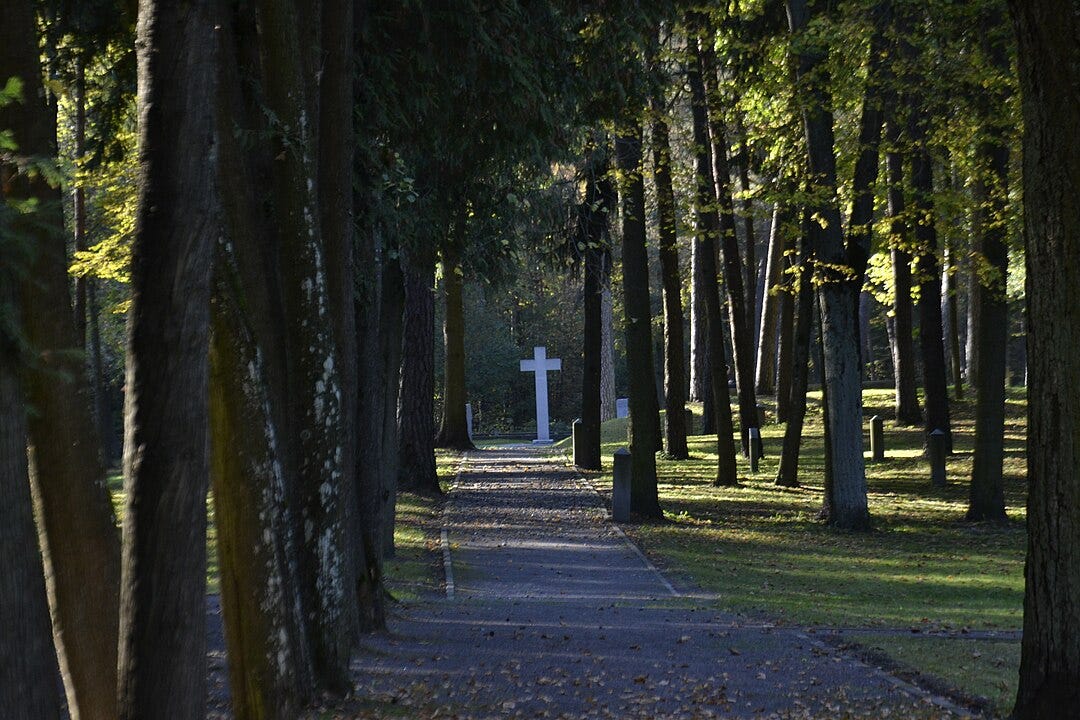Timeless and placeless
Digging into nostalgia
My wife’s a psychiatrist, and she sometimes gets to administer awareness tests to people who seem disoriented. According to her, there’s a curious subset of folk who will correctly identify the year we’re in, the day of the week, the city we live in, but when asked about the country they live in, they’ll answer “the USSR” with no hesitation. And while Soviet nostalgia definitely exists, I wouldn’t bet money on those particular folk feeling nostalgic for the regime itself. For them, the Soviet Union both sank and continues to drift on like a Flying Dutchman of sorts, a phantom entity haunting them.
When I was in my late teens, in my last years of high school and first years at Vilnius University, there used to be a histrionic lady riding trolleybus No. 2, a route connecting the student dorms and the train station. I remember her wearing a large fur hat and thick-rimmed glasses. Most people my age who commuted to lectures remember her vividly. Whenever the trolleybus's infocom announced a stop, she’d loudly interject.
“Vingriu stop used to be called Maxim Gorky’s stop”.
“Traku street used to be called Dzerzhinsky stop”…
and so on.
By doing so, she reminded everyone, especially us youngsters, about the old names. It looked as if she wanted to reclaim the mental map of the city of her youth. While someone would call her a Soviet nostalgic, a vatnik, or something worse, I’m doubtful it was just about politics for her. She claimed knowledge of a city that was both there, visible by the naked eye, and not there at all. And while the lady wearing a fur hat was an outlier, many of us act in the very same way.
People who grew up in Vilnius do this sort of thing unconsciously. They tell each other “let’s meet by the Kids’ World store”, perfectly knowing that the store by that name hasn’t been operating for almost 30 years. The building bears no signs reminding us that what is now a high street Zara, used to be a Soviet-era department store catering to schoolchildren. The old name exists only in the psychocartography of the city, and even people who have never set foot in the old store might still call it by its old name. And as Zara is actually closing that location down, I wouldn’t be surprised if people start calling the meeting point Zara posthumously, continuing the chain.
There is one place in town where I feel the layered nature of time and place most profoundly. It’s a WWI cemetery, with stone crosses, a monument with barely legible German writing and a giant lion sculpture. It probably looks like many other WWI cemeteries across Europe. But there’s a reason I associate bumper cars and cotton candy more than I associate it with fallen soldiers.
You see, when I was a kid , this same plot of land was home to an amusement park. I don’t recall much of the actual rides, but playing Sonic the Hedgehog on an arcade machine is probably one of my earliest childhood memories. If I close my eyes and transport myself back to that park, I can feel the smell of fresh paint hit my nostrils. I can hear the creaking of the pines in the wind, and Modern Talking’s Cherry Cherry Lady blasting from the speakers.
The bodies of hundreds of soldiers were underneath that amusement park. Both the kids and the adults going there were completely unaware of that, as the cemetery was covered up decades before. Today, whenever I pass that place, I still transpose my memories on top of that, as if trying to make sure that what I experienced was real.
There’s nothing tangible that reminds of the amusement park now, apart from the trees and the general location. Yet, if I pass that place with a person who’s never been there, I’m likely to share the story of the amusement park with them. Like the book memorizers in Fahrenheit 451, I’m sharing a record of something intangible. If only to reassure myself that I didn't dream up that time and place.



